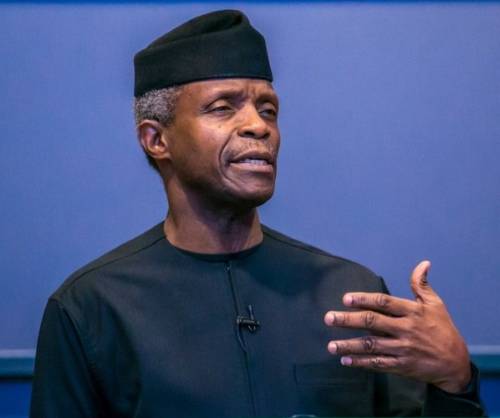Vice President Prof Yemi Osinbajo has said primary education is the function of state and local governments.
He said the large chunk of basic and secondary schools in Nigeria were state-owned while the federal government provide support to the state governments.
Osinbajo spoke Tuesday in Abuja at a two-day national dialogue on girls, theme: “National Dialogue on Girls: Towards a girl-friendly Nigeria”.
The forum was jointly organized by the African Child Policy Forum (ACPF), Women Arise for Change Initiative and the Africa-Wide Movement for Children (AMC).
“We run a federal system and questions of education; medical care is essential to state matters. Primary education is a state and local government matter. The federal government has only about 100 schools of the hundreds of thousands of schools.
“Sometimes, when we talk about out-of-school children and problems associated with education, we tend to focus on the federal government, whereas the federal government does not run primary school. That is not the business of FG. It is the business of state and local government,” the vice president said.
Osinbajo also identified social and cultural prejudices as some of the critical problems militating against the girl child in Nigeria.
He said though the federal government was making efforts to address the problems associated with girl child, states and local governments also have a role to play.
He also said the federal government cannot force the other tiers of government to implement its policies and laws on girl child.
“Even when a comparison is drawn between Nigeria and other countries, the tendency is to assume the FG can legislate that state governments should do a particular thing but that is not possible.
“Our country is a federal system. The states have governors, budgets and their budgets should reflect the true realities of their concerns,” he said.
The vice president urged states that are yet to domesticate the Child Rights Act, CRA, and the Violence Against Persons (Prohibition) Act to do so.
In her opening remarks, the Minister of Women Affairs and Social Development, Dame Pauline Tallen, described the dialogue as a clarion call on government as well as well-meaning individuals to support the girl child.
She added that government is in collaboration with UNICEF in many of these regards and that
The president, Women Arise, Dr Joe Okei-Odumakin, highlighted the persistent challenges still facing Nigerian girls.
“Nigeria has one of the highest child marriage prevalence rates in Africa and our girls are also at high risk of abduction, displacement and even death due to insecurity and conflict caused by insurgents and armed criminals. COVID-19 pandemic had made things worse,” she said.
Also, the Executive Director, African Child Policy Forum (ACPF), Dr Joan Nyanyuki, said it was important to recognize that despite concerted efforts, the challenges are fast outpacing current efforts, hence the need to redouble efforts.
“The efforts being made are simply not enough and commensurate with the myriad of challenges that girls across Nigeria are facing. We must recognize that investing in girls, even if it takes time to bear fruit, is a viable and smart strategy to break the vicious cycle of deprivation, poverty and inequality that Nigeria and several other countries in Africa are now facing,” she said.

 Join Daily Trust WhatsApp Community For Quick Access To News and Happenings Around You.
Join Daily Trust WhatsApp Community For Quick Access To News and Happenings Around You.
